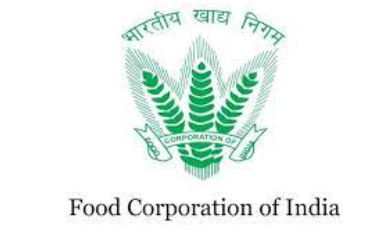Food Corporation of India (FCI)
The Food Corporation of India (FCI) is a statutory body under the Ministry of Consumer Affairs, Food and Public Distribution, Government of India. Established in 1965 under the Food Corporation Act, the FCI plays a crucial role in ensuring food security for the nation by managing the procurement, storage, and distribution of food grains.
History
The FCI was set up in 1965 in response to the food shortages and famines that plagued India in the preceding years. The primary objective was to provide farmers with remunerative prices, distribute food grains throughout the country for public distribution, and maintain buffer stocks of food grains to ensure national food security.
Objectives
The main objectives of the FCI are:
- Procurement of food grains from farmers at Minimum Support Price (MSP)
- Distribution of food grains throughout the country for public distribution
- Maintaining satisfactory level of operational and buffer stocks of food grains to ensure National Food Security
Procurement
The FCI, in collaboration with state government agencies, procures food grains from farmers at the Minimum Support Price (MSP) fixed by the government. The primary crops procured are wheat, paddy, and coarse grains. In the 2020-21 crop year, the FCI procured a record 890.19 lakh metric tonnes of wheat and paddy combined.
Storage
The FCI has a network of 1,889 warehouses across the country with a total storage capacity of 403.95 lakh metric tonnes (as of 2021). These warehouses are strategically located to facilitate the efficient storage and movement of food grains.
Distribution
The FCI distributes food grains to the state governments for further distribution through the Public Distribution System (PDS) at subsidized prices under various welfare schemes like the National Food Security Act (NFSA), Pradhan Mantri Garib Kalyan Anna Yojana (PMGKAY), and Mid-Day Meal Scheme, among others.
Buffer Stock
The FCI maintains buffer stocks of food grains to tide over unforeseen exigencies like droughts, failures of crop, and natural disasters. As per the buffer norms, the FCI is required to maintain a stock of 214.10 lakh metric tonnes of wheat and 136.10 lakh metric tonnes of rice as of 1st July every year.
Challenges
Despite its crucial role, the FCI faces several challenges:
- Storage losses due to inadequate and outdated storage infrastructure
- High operational costs due to inefficiencies in the supply chain
- Leakages and diversion of food grains meant for public distribution
- Mounting food subsidy burden on the exchequer
Reforms
The government has initiated several reforms to address these challenges and improve the operational efficiency of the FCI. These include:
- Modernization of storage infrastructure
- Computerization of operations and leveraging technology for real-time stock monitoring
- Direct Benefit Transfer (DBT) of food subsidy to beneficiaries
- Encouraging private participation in procurement and storage operations
The Food Corporation of India continues to play a vital role in ensuring food security for the nation, and with the ongoing reforms, it is expected to become more efficient and effective in fulfilling its mandate.


